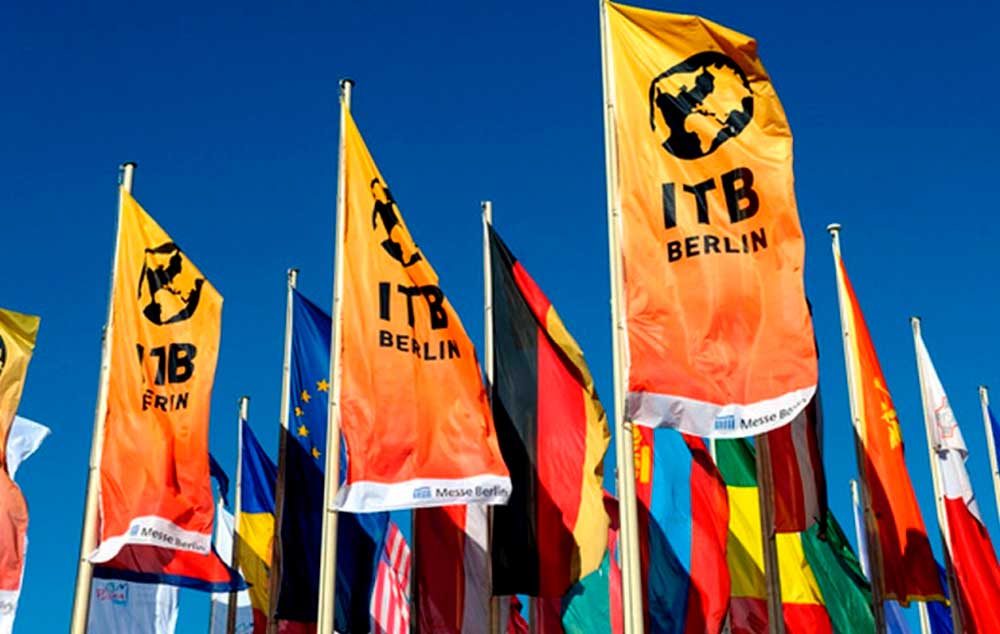
Barrier-free tourism at ITB Berlim: an underrated market with high growth potential
Disabled travellers represent a target audience that is on the increase and an increasingly important market – the ITB World Travel Trends Report examines the challenges and the growing significance of this market for the global travel industry
Barrier-free tourism is a vastly underrated market whose economic importance will increase drastically over the years and decades to come. Around the world, despite having the time and money to travel, millions of people with disabilities or reduced mobility are unable to do so due to a lack of facilities. What is more, because of the demographic change in many countries and the growing desire of the elderly to travel, potential demand in this market will rise significantly. These are the findings of the latest ITB World Travel Trends Report, compiled by IPK International and commissioned by ITB Berlin.
According to Lilian Müller, President of the European Network for Accessible Tourism (ENAT), the most recent statistics reveal that in Europe alone there are 80 million people with disabilities: ”Global estimates range from 600 million to 900 million.“ That means that with world’s population now at seven billion, about ten per cent require barrier-free and easily accessible facilities.
Commenting, Dr. Martin Buck, director of the Competence Center Travel & Logistics, Messe Berlin, said: “It is important for the global travel industry to exploit this potential, as removing barriers enables not only the disabled to enjoy stress-free holidays. Other groups, for example families with young children, accident victims and the elderly, also benefit from barrier-free arrangements.“
Lack of arrangements hampers market growth
The economic importance of this market is huge: US adults with disabilities or reduced mobility spend around 13.6 billion dollars on travel every year. In Germany, turnover in this market is estimated at around 2.5 billion euros and in the UK at almost two billion pounds. “In the future these figures may well rise“, said Lilian Müller. In recent years, around 37 per cent of disabled people in Germany have decided not to travel due to a lack of easily accessible facilities. However, 48 per cent would travel more if the necessary arrangements existed. 60 per cent would even be willing to pay higher travel costs for better accessibility.
According to Lilian Müller, barrier-free tourism should no longer be a niche market: “Accessibility arrangements must be part of every single travel package. There is also a demand for specialist operators to offer services for customers with greater mobility needs“, she added. The internet represents an important platform for achieving a barrier-free future. That means tour operators and travel agencies making their internet information accessible to blind and deaf persons. According to a survey by ENAT, in 2011 only 10 out of 39 websites could be accessed by the disabled.
The ITB World Travel Trends Report has more information on barrier-free tourism as well as details of every survey on global tourism trends. It can be downloaded at www.itb-berlin.com. The report is based on the assessments of 50 tourism experts from 30 countries, on a special IPK International trend analysis undertaken in leading source markets, and on core data supplied by the World Travel Monitor®, recognised as the largest continuous survey of global travel trends in some 60 source countries. The findings reflect trends which emerged during the first eight months of 2012. At the ITB Berlin Convention Rolf Freitag, CEO of IPK International, will present the findings for the entire year, as well as the latest forecasts for 2013.
From 10.30 to 11.45 on Friday, 8 March 2013 at the ITB Berlin Convention, a keynote panel will examine “Barrier-free tourism for everyone: quality and success criteria for ensuring the marketability of destinations.”
About ITB Berlin and the ITB Berlin Convention
ITB Berlin 2013 will be taking place from Wednesday, 6 to Sunday, 10 March, and from Wednesday to Friday will be open to trade visitors only. Parallel with the trade show, the ITB Berlin Convention, the largest travel industry event of its kind in the world, will be held from Wednesday, 6 to Friday, 8 March 2013. More details are available atwww.itb-convention.com. Azerbaijan is the Convention & Culture Partner of ITB Berlin 2013. Basic Sponsors of the convention are the World Tourism Forum Lucerne and Studiosus. ITB Berlin is the world’s leading travel trade show. In 2012 a total of 10,644 exhibitors from 187 countries displayed their products and services to 172,000 visitors, who included 113,006 trade visitors.
The World Travel Monitor® from IPK International is the world’s largest tourism survey and the only one examining the volume of outbound travel and travel behaviour (destination choice, purpose of trip, holiday types, types of business travel, duration of trip, transportation mode, accommodation type/category, travel season, information and booking behavior, expenditure, regional markets, target group profiles etc.) in 60 countries of origin in Europe, the Arab countries, the Americas and Asia.
Source: ITB Berlim
Compartilhe
Use os ícones flutuantes na borda lateral esquerda desta página
Siga-nos!
Envolva-se em nosso conteúdo, seus comentários são bem-vindos!
Artigos relacionados
Acessibilidade no ESG. Equipotel aborda o tema para o turismo.
Acessibilidade no ESG, para o mercado do turismo. Equipotel aborda a importância da inclusão da pessoa com deficiência.
Morte Sobre Rodas. Filme inclusivo foi candidato ao Oscar.
Morte Sobre Rodas. Dois protagonistas do filme, são pessoas com deficiência, um usuário de cadeira de rodas e outro com paralisia cerebral.
Paralimpíada de Paris 2024. A deficiência não é um limite.
Paralimpíada de Paris 2024. A cidade luz sedia o maior evento esportivo do mundo para as pessoas com deficiência.






0 comentários